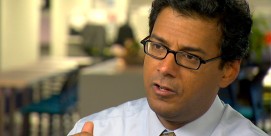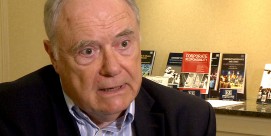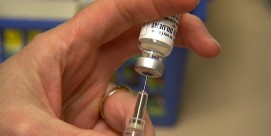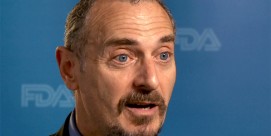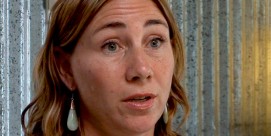Topic: Ethics
“An illness is a story for people. It’s a chapter in their life. It may be, in some cases, the last chapter in their life. Your chance to be the author of what happens in your story is fundamental to the meaning of people’s lives. That story of what happens is how we think, it’s how we breathe, it’s how we live our whole life.” More
“It’s an opportunity for us to not just think about the bottom line, which is important. But there are other things that are as important,” says Suzanne McDowell, co-CEO of King Arthur Flour Company. “The environment, our society, community, all of our shareholders—not just the bottom line.” More
“Corporations are going to have to live up to a new standard if they are going to be able to hold on to the freedom of free enterprise, and the B Corp might be the way for that to happen,” says this emeritus professor of business ethics and corporate responsibility. More
“There’s really no widespread religious objection to the [measles] vaccine…It’s that I have a belief that these vaccines are harmful, or that they don’t work, or I don’t believe that somebody else should be telling me how to raise my kids,” says Religion News Service editor-in-chief Kevin Eckstrom. More
In most states, parents can choose not to vaccinate their children based on a personal or religious objection. It’s a choice that has begun raising concerns about the ethics of refusal and the rising risk of outbreaks. More
Some social media companies—including Facebook—have run experiments to learn what influences user behavior. Many of these experiments have troubled both social media users and privacy advocates, who worry that this research and use of personal information is unethical. More
“I’ve seen it more than once where it’s the family members simply can’t let go or decide we can leave no stone unturned,” says Richard Klein of the FDA patient liaison program, “whether or not it’s what the patient really wants.” But do families and patients have a right to try unapproved drugs without going through the FDA? More
In the five states where it’s legal, physician-assisted dying involves rigorous regulations, including how long a person has lived there, says Cathy Lynn Grossman, senior national correspondent for Religion News Service. “Brittany Maynard moved from California to Oregon, where it’s legal specifically to qualify for…a prescription for lethal drugs. The person takes the drugs themselves if and when they choose to, and not everyone who gets the prescription ever uses it.” More
“We should be thinking about how we can more vigorously and effectively help the people of West Africa and how we can protect health care workers in the United States. We can afford to do both quite well,” says bioethicist George Annas. More
“These are folks that in many cases couldn’t pay like a two hundred dollar fine or ticket. They’re put on probation. They have to pay interest on what they owe, and they have to pay that company for the privilege of being supervised by them,” says Caroline Issacs, Arizona program director of the American Friends Service Committee. “It’s like a payday loan they end up paying ten times over, and these are people that are poor to begin with.” More

